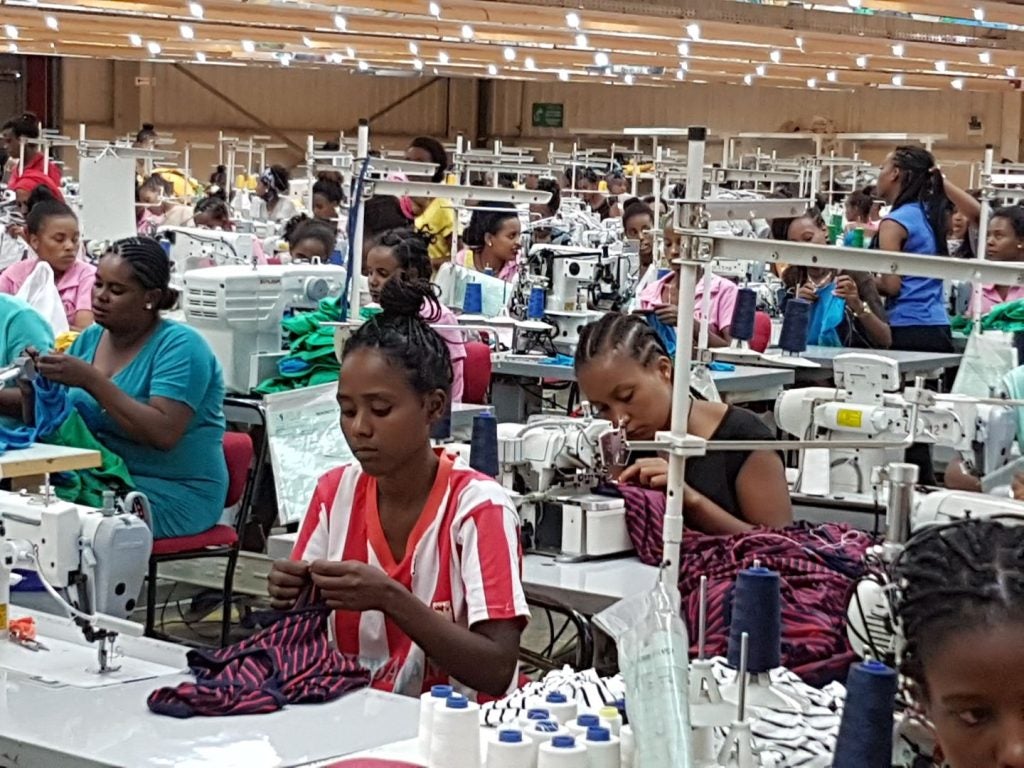America suspended Ethiopia from the AGOA free trade act in late December 2021, because of the ongoing civil war with the rebel Tigray People’s Liberation Front (TPLF).
Industrialists had hoped that as one of AGOA’s founding member countries, Ethiopia would be reinstated shortly. That hope was further raised when the Ethiopian government and the TPLF signed a peace agreement in November 2022 to end a two-year brutal war that claimed the lives of up to 600,000 people.
Patrick Heinisch, a Germany-based economist focusing on Ethiopia said human rights violations in other regions of the country, such as in Amhara, where there has been another regional rebellion this year (2023), make this prospect unlikely in 2024.
Heinisch said that as result: “The US is moving the goalposts with regards to Ethiopia’s request to rejoin AGOA.”
While Ethiopia’s ministry of industry and ministry of trade and regional integration and the Ethiopia Textile and Garment Manufacturers’ Association did not respond to Just Style questions on this issue, Sweden’s Hennes & Mauritz (H&M) stressed that it had “closed our operations in Ethiopia”, without giving further information. H&M used to source garments from Ethiopia’s flagship Hawassa Industrial Park, south of the capital Addis Ababa.
Speaking to an Ethiopian parliamentary committee last month (November 22), Zenebe Kebede, Europe and American affairs director general at Ethiopia’s Ministry of foreign affairs, said: “When we go there and when they come here, the issue of AGOA has always been raised. The problem with westerners is that when they want to impose pressure on Ethiopia, they have a habit of changing their precondition in short intervals. When one is fulfilled, they bring another…"
He claimed Ethiopia has fulfilled a previous precondition laid down by the US for AGOA reinstatement, without stating what that condition entailed: “They were supposed to reinstate us, while additional issues were being solved…and despite our relentless efforts, the US government has decided to stay the issue of (Ethiopia’s reinstatement) into AGOA,” added Kebede.
Heinisch said the suspension had harmed the Ethiopian clothing and textile sector, which had been unable to replace lost American trade with sales to Asia, Africa or the domestic market (population 120 million, and GDP per capita of USD1,027 in 2022, according to the World Bank). This is despite the roll-out of the African Continental Free Trade Area (AfCFTA), which was launched in 2018. Heinisch said this could only have an impact if African countries manage to promote trade integration as a result. So far, the impact on the Ethiopian economy has not been significant. “African countries only play a minor role,” in the country’s clothing and textile trade, the economist told Just Style.
“Ethiopia’s government has encouraged companies to look for alternative markets in Asia or Africa, but those markets have different characteristics than the US market. So, they are not easily accessible with the same products,” he added.
A UN Development Programme (UNDP) report released in December (2023) revealed the extensive impact of Ethiopia’s suspension from AGOA trade pact. It said: “There has been an exodus of foreign firms from many of the industrial parks, mainly due to the conflict, the…AGOA suspension, and the security situation.” It also highlighted the “lack of global market, especially textiles (due to AGOA suspension)”. It noted that following this event, Ethiopian investors have not stepped in to sink money into the Hawassa park, which has been oriented towards the clothing and textile export trade and “are not investing in the textile and garment sector because they do not have global knowledge about the sector”.
However, Heinisch said Ethiopia’s fortunes could also be impacted by US domestic politics: “There is currently a debate in US about the future of AGOA because it’s supposed to expire in 2025. Maybe it will be replaced by a new trade regime with Africa of which Ethiopia could then be part of,” he told Just Style.









